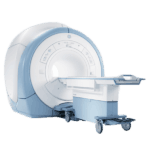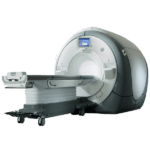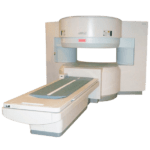There’s a possibility that one day MRI brain scans may help predict whether people will develop dementia
According to research conducted at the Washington University School of Medicine in St. Louis and the University of California San Francisco, there’s a possibility that one day MRI brain scans may help predict whether people will develop dementia.
The MRI brain scans used within the study were able to predict with a 89 percent accuracy who would go on to develop dementia within 3 years. The study’s findings were presented at this years’ RSNA and suggested that doctors may one day be able to use tests such as MRI to warn people of their risk of dementia, long before symptoms arise.
According to the study’s lead author Cyrus A. Raji, MD, PhD, who is an assistant professor of radiology at Washington University’s Mallinckrodt Institute of Radiology: “Right now it’s hard to say whether an older person with normal cognition or mild cognitive impairment is likely to develop dementia. We showed that a single MRI scan can predict dementia on average 2.6 years before memory loss is clinically detectable, which could help doctors advise and care for their patients.”
Alzheimer’s disease affects 5.5 million Americans, according to the National Institutes of Health (NIH), and is a progressive, irreversible brain disorder that destroys memory and thinking skills.
As of today, the way neurologists gain an estimate of a patient’s risk of Alzheimer’s is by using the Mini-Mental State Examination questionnaire, or, alternatively, by testing for the high-risk form of the gene ApoE, which increases a person’s risk of Alzheimer’s by up to 12-fold. During this particular study, both tests were about 70 to 80 percent accurate. PET scans are also good at detecting early signs of Alzheimer’s, though the problem lies with cost: PET scans cost thousands of dollars and require radioactive materials not found in a typical hospital, so they’re unavailable to a majority of patients.
Get Started
Request Pricing Today!
We’re here to help! Simply fill out the form to tell us a bit about your project. We’ll contact you to set up a conversation so we can discuss how we can best meet your needs. Thank you for considering us!
Great support & services
Save time and energy
Peace of mind
Risk reduction
By contrast to PET scans, MRI scans are readily available for patients, and are able to give doctors a glimpse into what’s going on inside a person’s brain. During the study, the MRI scans were analyzed for physical signs of impending cognitive decline, using a technique called diffusion tensor imaging in order to assess the health of the brain’s white matter, which encompasses the cables that enable different parts of the brain to talk to one another.
“Diffusion tensor imaging is a way of measuring the movement of water molecules along white matter tracts,” Dr. Raji said. “If water molecules are not moving normally it suggests underlying damage to white tracts that can underlie problems with cognition.”
More signs of damage to the brain’s white matter is considered a precursor to cognitive decline, as found in the study. The researchers used the Alzheimer’s Disease Neuroimaging Initiative, which is a multisite collaboration that pools data, funding, and expertise to improve clinical trials of Alzheimer’s disease. The study team identified 10 people (average age 73) whose cognitive skills declined over a 2 year period and matched them by age and sex with 10 people whose thinking skills held ready, also an averaged age of 73.
When the researchers analyzed diffusion tensor MRI scans taken just before the 2 year period for all 20 people, the significance of the white matter was discovered. More damage means greater cognitive decline to be expected. Repeating their analysis in a separate sample of 61 people with a more refined measure of white matter integrity, the researchers were able to predict cognitive decline with 95 percent accuracy when looking at specific parts of the brain most likely to show damage, and 89 percent accuracy when looking at the whole brain.
“We could tell that the individuals who went on to develop dementia have these differences on diffusion MRI, compared with scans of cognitively normal people whose memory and thinking skills remained intact,” Raji said. “What we need now, before we can bring it into the clinic, is to get more control subjects and develop computerized tools that can more reliably compare individual patients’ scans to a baseline normal standard. With that, doctors might soon be able to tell people whether they are likely to have Alzheimer’s develop in the next few years.”
Unfortunately there are no drugs or cures available for Alzheimer’s disease, but knowing whether a patient is high risk or not is certainly beneficial, as it will give them more time to make decisions about their life before cognitive decline becomes significant.



